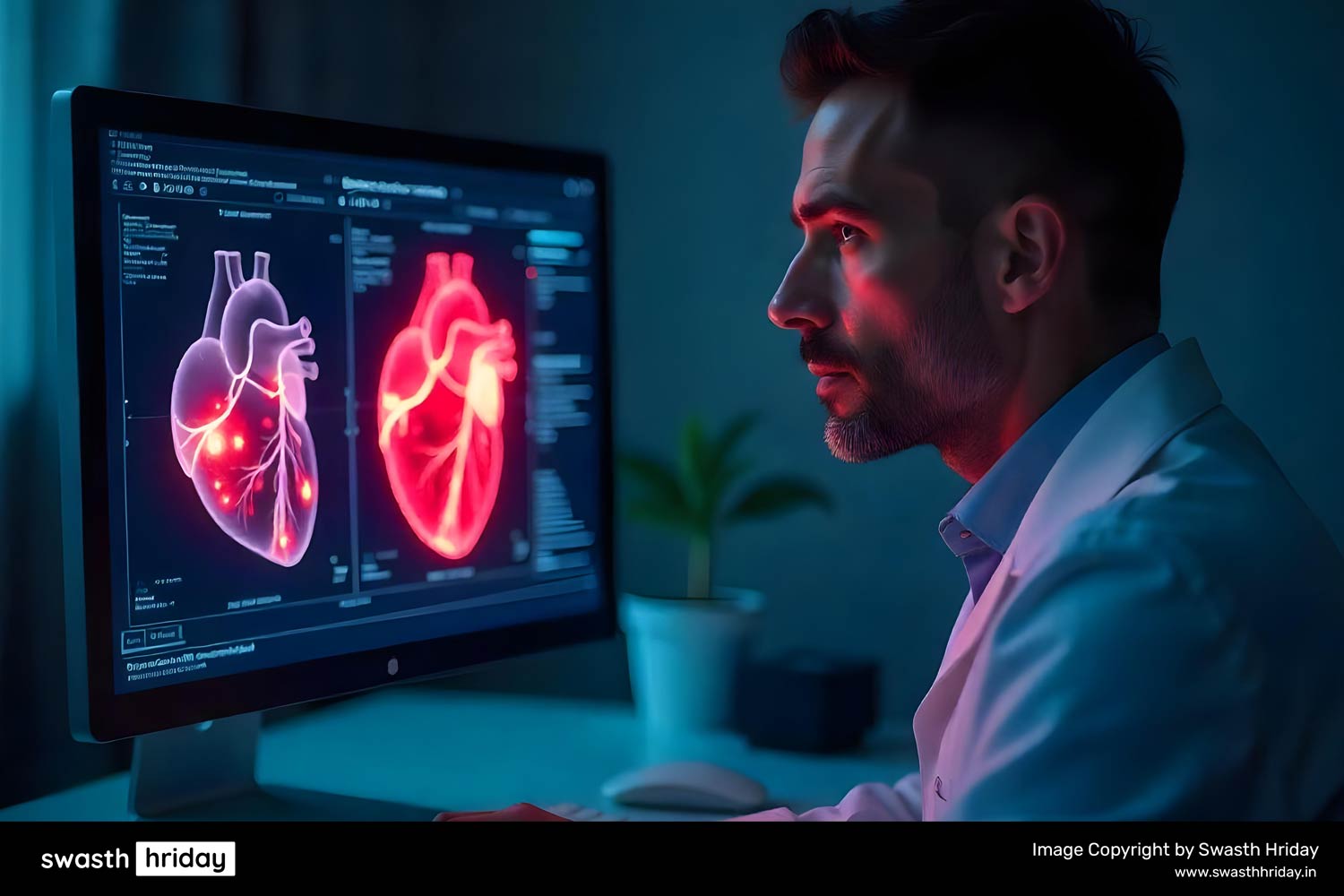Have you ever felt your heart flutter, pound, or skip a beat? These sensations are known as heart palpitations. While often harmless, they can sometimes signal an underlying heart condition that needs attention. Understanding when to worry and when it’s just a momentary blip can help you make informed health decisions.
In this article, we explain the causes, symptoms, warning signs, and treatments for heart palpitations—all in simple, easy-to-understand terms.
What Are Heart Palpitations?
Heart palpitations are feelings that your heart is beating too fast, too hard, skipping beats, or fluttering. They can be felt in your chest, throat, or neck.
Characteristics of Palpitations:
- A racing heartbeat
- Irregular rhythm
- Pounding or thumping sensation
- Feeling like the heart "skipped" a beat
They may occur during activity or at rest and can last from a few seconds to several minutes.
Common Causes of Heart Palpitations
Heart palpitations may be caused by a variety of lifestyle and medical factors. Most are benign, but some may need medical evaluation.
Non-Cardiac Causes:
- Stress or anxiety
- Caffeine or nicotine intake
- Alcohol or recreational drugs
- Dehydration
- Hormonal changes (e.g., pregnancy, menopause)
- Fever or infection
Cardiac-Related Causes:
- Arrhythmias (like atrial fibrillation)
- Heart valve disorders
- Cardiomyopathy
- Electrolyte imbalances
When Are Heart Palpitations Normal?
Many people experience occasional palpitations that are not related to a serious health issue.
Situations Where Palpitations Are Typically Harmless:
- After strenuous exercise
- During periods of strong emotions
- Following high caffeine or sugar intake
- Due to dehydration or lack of sleep
If they resolve quickly and don’t come with other symptoms, they are usually nothing to worry about.
When to Worry About Heart Palpitations?
There are specific signs that should not be ignored and warrant a medical consultation.
Warning Signs:
- Palpitations that last more than a few minutes
- Associated chest pain or pressure
- Shortness of breath
- Dizziness or fainting
- Irregular heartbeat that feels chaotic or fluttering
- History of heart disease
Read When to See a Cardiologist: Red Flags You Shouldn’t Miss for more.
Diagnostic Tests Your Doctor Might Recommend
To understand what’s causing your heart palpitations, your doctor might order the following tests:
Common Diagnostic Tools:
- Electrocardiogram (ECG): Checks electrical activity of the heart
- Holter monitor: Portable ECG worn for 24-48 hours
- Echocardiogram: Uses ultrasound to view heart structure
- Blood tests: Check for thyroid issues or electrolyte imbalances
In high-risk cases, additional imaging like a stress test or cardiac MRI may be needed.
Treatment Options for Heart Palpitations
Treatment depends on the root cause. Benign palpitations may not need any treatment, while underlying heart issues will require medical management.
Lifestyle Interventions:
- Reduce caffeine and alcohol intake
- Stay hydrated
- Get adequate sleep
- Practice stress reduction techniques like meditation or yoga
Explore Can Yoga Improve Heart Health?.
Medical Treatments:
- Anti-arrhythmic medications
- Beta-blockers or calcium channel blockers
- Pacemaker or implantable defibrillator in severe cases
If palpitations are related to other heart conditions, explore High Blood Pressure and Your Heart: What You Need to Know.
Preventive Tips to Avoid Heart Palpitations
Simple habits can help reduce the frequency and severity of palpitations.
Heart-Healthy Habits:
- Eat a balanced diet rich in magnesium and potassium
- Avoid smoking and secondhand smoke
- Exercise regularly but avoid overexertion
- Monitor your blood pressure and cholesterol
Find heart-smart meal ideas in Best Foods for a Healthy Heart: Doctor-Recommended Diet Plan.
FAQs About Heart Palpitations
- Are heart palpitations dangerous?Most are not. But those associated with symptoms like chest pain or fainting may indicate a serious issue.
- Can anxiety cause heart palpitations?Yes. Anxiety is one of the most common non-cardiac causes of palpitations.
- Should I stop exercising if I feel palpitations?Pause the activity and consult a doctor, especially if the sensation recurs frequently.
- Do smartwatches help in monitoring heart rhythms?Yes, wearable tech can help detect irregular heartbeats. However, always confirm findings with a medical test.
Final Thoughts: Know When to Act
Heart palpitations are common and often harmless, but they can sometimes indicate a more serious issue. Understanding the symptoms, identifying potential triggers, and knowing when to seek help can make all the difference in your heart health journey.
If in doubt, don’t ignore the signs. Get a proper evaluation and take charge of your heart health today.



